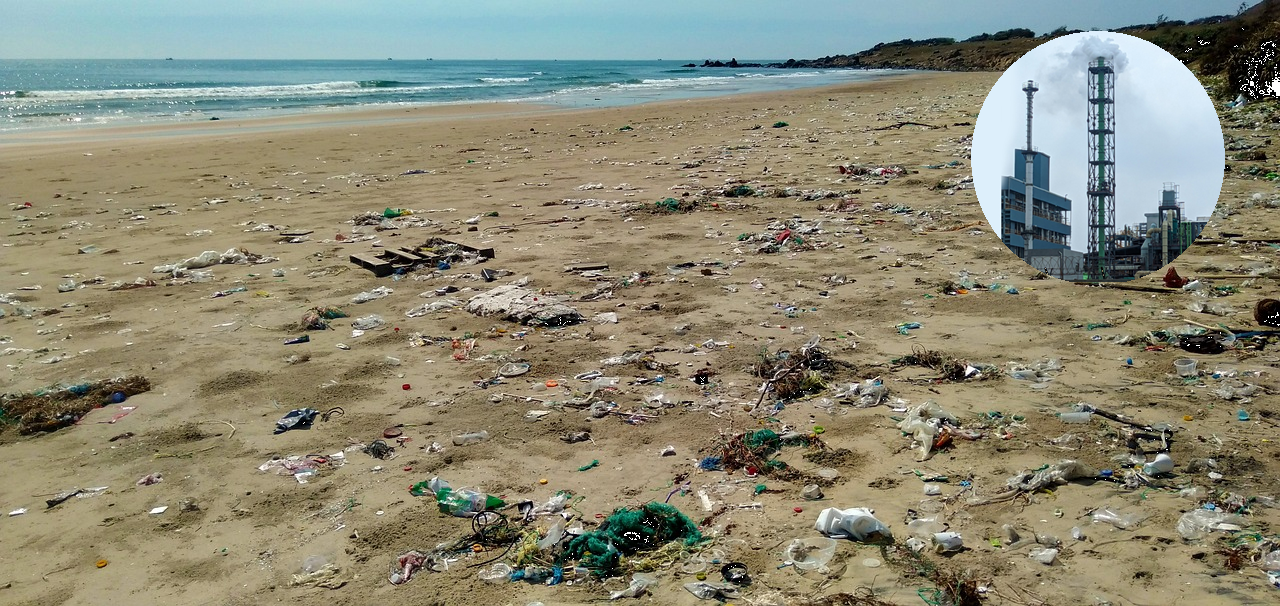Investing in smart waste management such as WtE solutions will ensure safety of public health and economic stability of the State

Goa is associated with beautiful beaches, coconut trees, and laid back life. But beneath the surface of this peaceful life, the state is dealing with a huge challenge that even threatens its very essence. That is its escalating waste challenge.
The state develops with every passing year and the tourism, industries and residential complexes grow, so does the amount of waste generated on daily basis. This waste is piling up and we need to seriously rethink of how we manage the waste to protect this precious environment.
Goa's waste challenge:
Efforts and
remaining gaps
From plastic bags and bottles on the beach to overflowing waste bins along the road, and the acrid smell of waste burning fills the air. These are a common sight in Goa’s tourist hotspots but as well as in the small towns and cities.
While it may seem like an aesthetic displeasure but its impact on our land, our water, and our health is much worse. Imagine toxic liquids seeping into the agricultural land and groundwater sources, allowing contaminants and toxins enter our food and water.
Open and uncontrolled burning releases invisible particles into the air our children and we breathe. This leads to the development of severe health issues affecting young children to adults alike, and we can no longer afford to keep burying our problems.
Goa has taken a lot of initiative to manage its waste problems like awareness about waste segregation at source, wet and dry waste collected separately in many areas.
Many communities and municipalities are investing in composting organic waste and establishing recycling facilities. These small steps are very important, showcasing our commitment to a greener future.
However even with careful segregation and recycling, a large amount of waste ends up mixed or inherently nonrecyclable. This is where the system often fails and leading to overwhelming the existing landfills and dumpsites.
Such site occupies large valuable land and waste deposited over long time emits foul odors, and posing serious environmental and health concerns for people living in surrounding vicinity. Therefore the core challenge lies in efficient treatment of waste that cannot be recycled or composted.
Beyond landfills:
A new vision
for residual waste
So what would be a more suitable alternative for the waste that is not recyclable or biodegradable? Technological solutions exist before us but we often overlook approaches that are differ from traditional approaches.
Modern Waste to Energy (WtE) incinerators are one such option. When one hears the world ‘incinerator’ we think of old, smoky furnaces emitting black soot. With advancement in technology, the modern incinerators are using state of the art technology.
These are equipped with advanced systems like filters, sensors and monitors that measure the values in real time. Ensuring that released emissions are within the CPCB (Central Pollution Control Board) and SPCB (State pollution control board) norms.
This process generates a lot of heat which can be utilized to generate electricity and to power homes and businesses. This is a technology widely adopted in European countries like Germany, Switzerland etc and also Asian countries like Singapore and Taiwan etc to effectively manage their waste.
Why modern
incineration makes
sense for Goa
For Goa, this approach offers a compelling path. Firstly it drastically reduces the waste volume so large area of land will not be needed for its disposal. This in turn helps in conservation of green areas and protecting the community spaces.
Secondly, it provides a stable, local energy source, lessening our dependence on external power and creating a more self-sufficient Goa.
Thirdly the toxins and hazardous components are neutralized efficiently, thereby lowering environmental harm, protecting citizens health. Incineration is an efficient method for dealing with daily waste on a long run.
Investing in
Goa's Future
We need to invest in smart waste management such as WtE solutions. Making Goa resilient, protects it from long run impacts of mismanaged waste, and maintaining our coastline and water sources is a necessity.
Investing in smart waste management will ensure safety of public health and the economic stability of the state.
The journey to make Goa sustainable, needs support from the government, businesses, and citizens alike to adopt innovation and make informed choices.
By adopting sophisticated WtE solutions, we can turn a challenge into an opportunity, ensuring that Goa's future remains as bright and beautiful as its famous beaches.